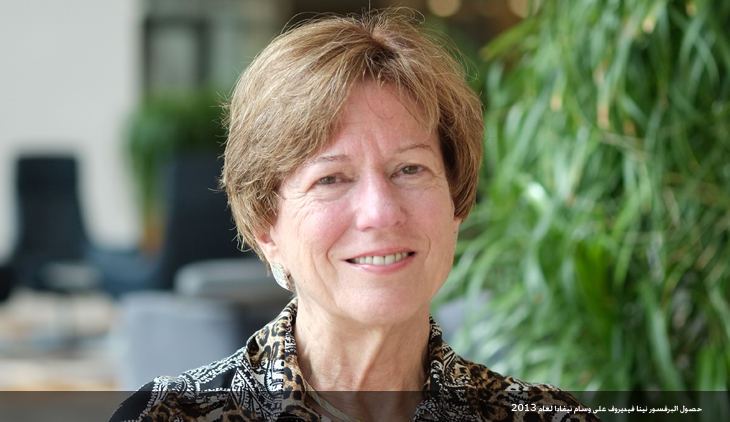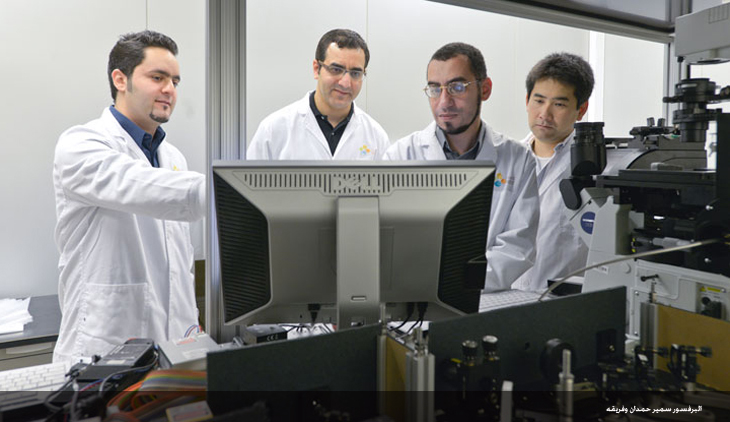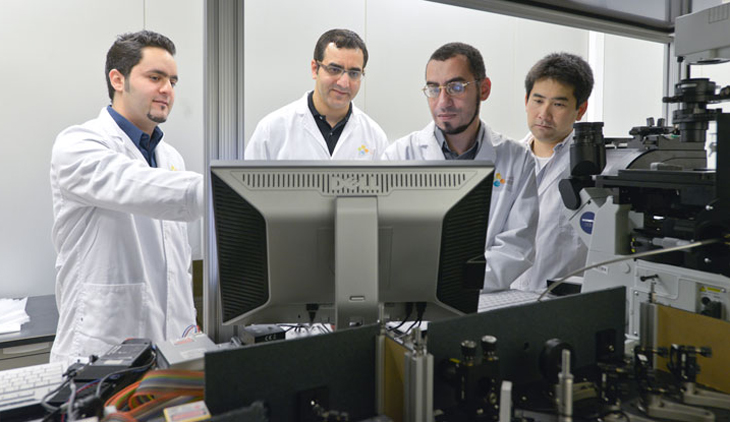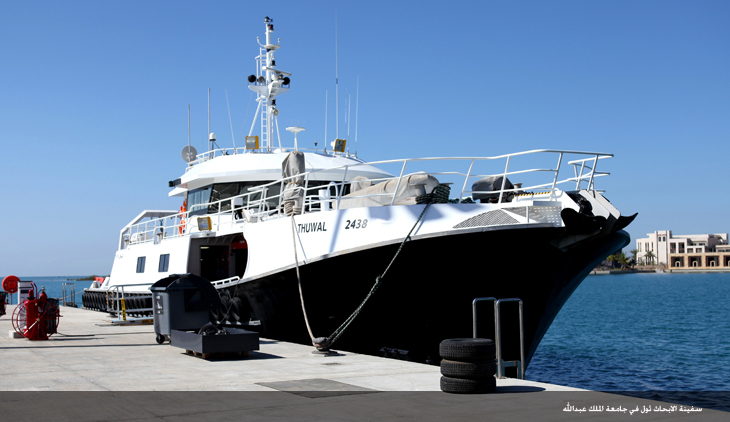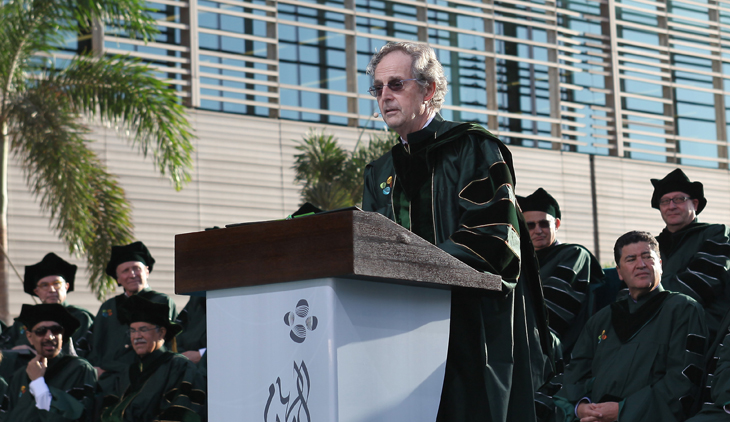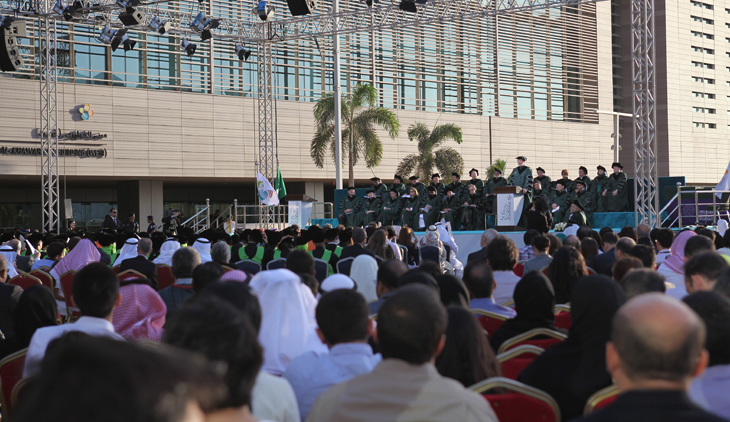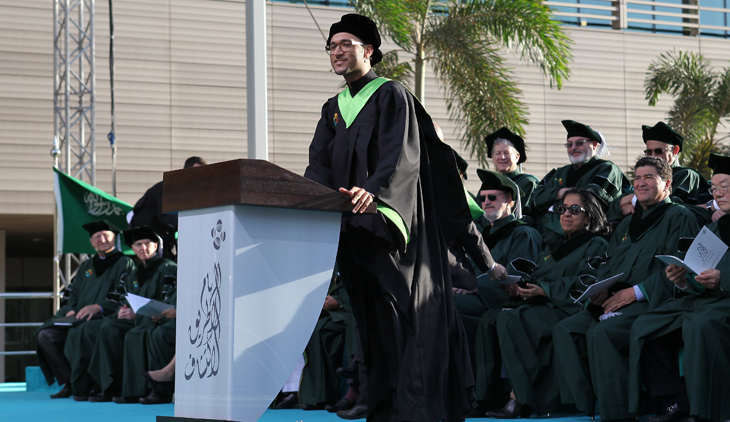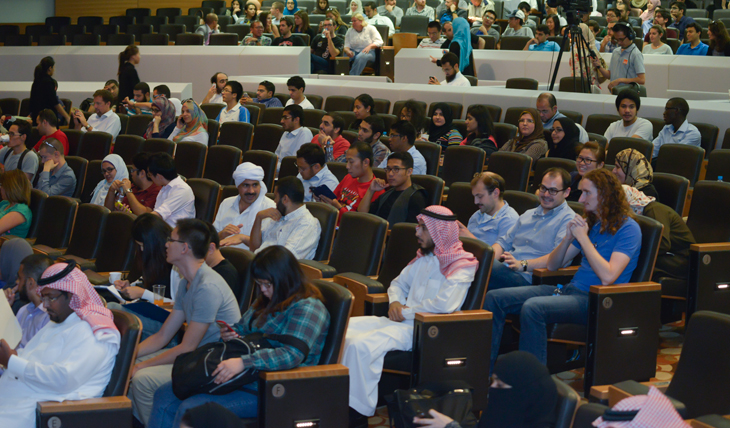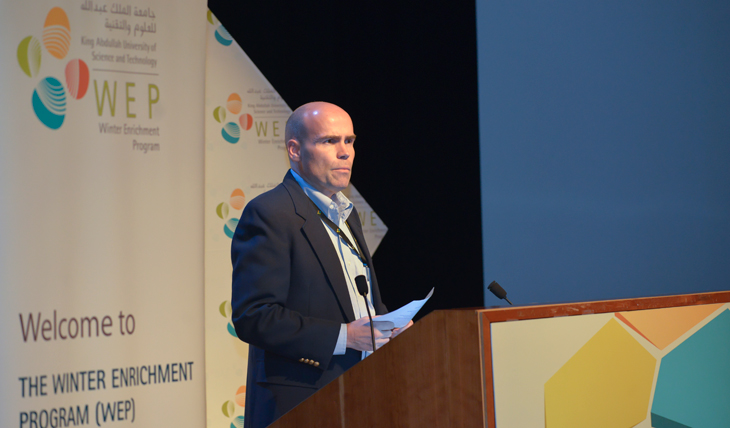KAUST Highlights of 2013

The past year at King Abdullah University of Science and Technology (KAUST) has seen some important milestones and achievements for the University.
International Recognition of KAUST Faculty and Leadership Through Major Awards
This past year saw members of KAUST faculty and leadership being awarded major international awards.
At the beginning of the year, Prof. Jean Frechet, KAUST Vice President for Research, was awarded the 2013 Japan Prize in recognition of his original and outstanding scientific achievements serving to promote peace and prosperity for all mankind. Dr. Frechet and C. Grant Willson of the University of Texas at Austin were recognized for their achievement in the development of chemically amplified resistant polymer materials for innovative semiconductor manufacturing processes.
Also appointed in the past year, Prof. Yves Gnanou, KAUST Dean of Physical Science and Engineering (PSE), was inducted into the elite ranks of the French Ordre national de la Légion d'honneur (National Order of the Legion of Honor). He was presented with the coveted Chevalier medal at a ceremony held in Paris on June 27, 2013. Established over two centuries ago by Napoleon Bonaparte, the award recognizes its recipients' extraordinary contributions to France and French culture. Prof. Gnanou previously served as Vice President of Academic Affairs and Research at École Polytechnique in Paris.
Spanning a third continent, the Desert Research Institute (DRI), in the US, presented Nina Fedoroff, Distinguished Professor of Bioscience and Director of the KAUST Center for Desert Agriculture, with the 2013 Nevada Medal. The award acknowledges outstanding achievements in science and engineering. The DRI President, Dr. Stephen Wells, said: "In only a few decades Prof. Fedoroff's research has helped stimulate a revolution in biology."
KAUST Research Innovations
Faithfully living by KAUST's motto of "through inspiration, discovery," both new and established members of the University's faculty have produced research and innovations which have impacted their field and industry.
Research conducted at KAUST has continued to be regularly featured in high-impact scientific journals. Among the papers published are innovations in various scientific fields such as coral reef disease, microbial fuel cells, DNA replication and repair, carbon capture techniques, lipid monolayers patterns, transparent electronics and computing, energy harvesting, hot-electron nanoscopy, as well as organic solar cells.
In addition, a winner of the KAUST Seed Fund program, Red Sea Research Center marine scientist, Prof. Michael Berumen, and his iDive team launched a housing device to allow divers to use an iPad under water. Their product was displayed on the big screen at the Apple event in California launching their latest iPad.
The Inauguration of Our New President
During the early part of this concluding year, KAUST welcomed our new President, Dr. Jean-Lou Chameau. Selected unanimously by the Executive Committee of the University's Board of Trustees, Dr. Chameau joined KAUST from the California Institute of Technology (Caltech), where he previously served as President since 2006.
During his Convocation speech, Dr. Chameau told new students that the KAUST experience "is an adventure of the mind, spirit and imagination." He has also spoken to international audiences since becoming KAUST's second president. His message has consistently been to highlight the value of excellence in research and recognizing the impact of groundbreaking science and innovation to address important questions.
KAUST Acquires New Research Vessel
In the fall of 2013, KAUST acquired Saudi Arabia's first research vessel, the R/V Thuwal. Following a long sea journey from Australia aboard a larger ship, the 35-meter long vessel was inaugurated at KAUST during a ceremony attended by the University's leadership, faculty and students from the Red Sea Research Center, as well as members of the KAUST community. The new vessel will help the KAUST marine scientists to explore the Red Sea with greater flexibility.
Describing how the vessel would initially be put to use, Prof. Xabier Irigoien, the Director of KAUST's Red Sea Research Center, explained: "Our first projects will include biodiversity and impact studies. We are collaborating with Saudi Aramco on setting up fixed instruments to measure and collect samples at intervals along the Red Sea."
New KAUST Faculty Members
During the past year, the University has welcomed several new faculty members, bringing along an impressive array of research backgrounds and contributions to KAUST's three academic Divisions.
Among others, their expertise and research focus range from 4D electron imaging techniques, sustainable nanostructured materials, atomic force microscopy, sensor technology for earthquake monitoring, as well as plant salinity tolerance research.
Commencement
The fourth KAUST Commencement ceremony, recently held on December 14, marked the official inauguration of Dr. Jean-Lou Chameau by H.E. Ali I. Al-Naimi, Chairman of the Board of Trustees.
The Class of 2013, representing five continents, comprised of eighteen PhD graduates and ninety-six Master's graduates. Among them, May Majed Saleh Al-Qurashi, was KAUST's first Saudi PhD graduate.
During his moving commencement speech, Master's candidate Hassan Al-Ismail, who represented the Class of 2013, said: "I couldn't feel more proud to have been an alumnus of this great place. And I stand here today feeling confident that there was no better place to do my graduate studies than at KAUST."
Winter Enrichment Program (WEP)
As KAUST students and community members look forward to the upcoming Winter Enrichment Program (WEP), the University's young tradition of welcoming world-leading experts on campus in January continues to grow.
As will be the case this month, the last edition of WEP featured many interesting keynote speakers from a veteran space explorer (Claude Nicollier), renowned explorer and environmental advocate Philippe Cousteau, Silicon Valley entrepreneur Philip Rosedale, as well as the Director of NASA's Jet Propulsion Laboratory (JPL) and member of the President's International Advisory Council (IAC), Dr. Charles Elachi, whose team is responsible for Mars rover program.
Please enable JavaScript to view the comments powered by Disqus. comments powered by Disqus


